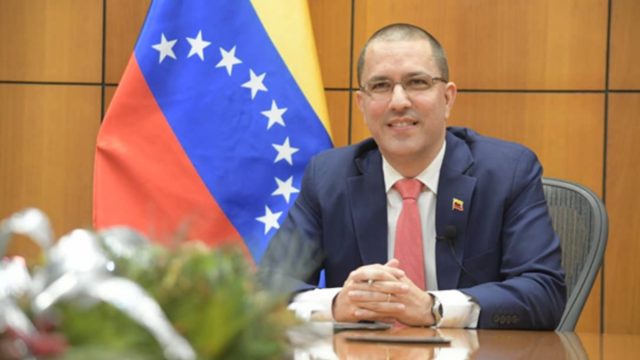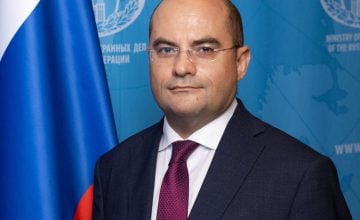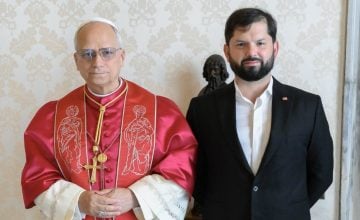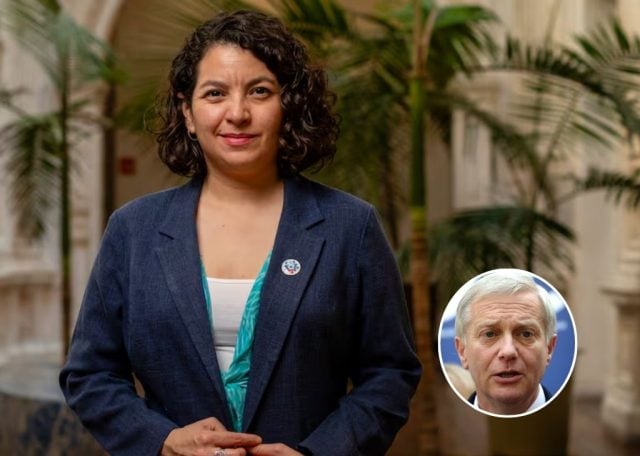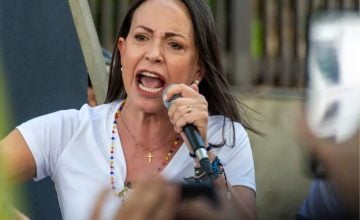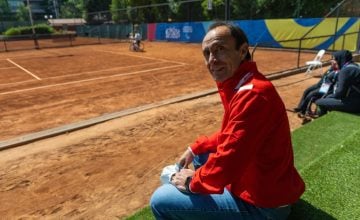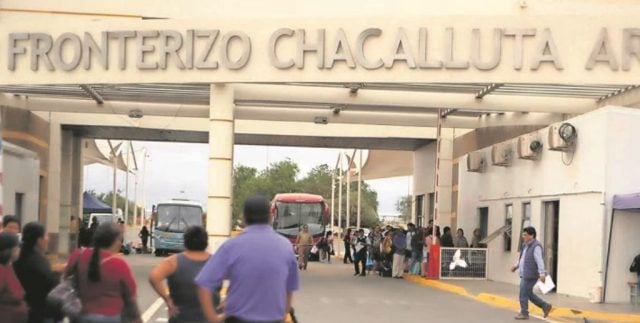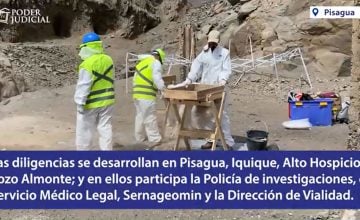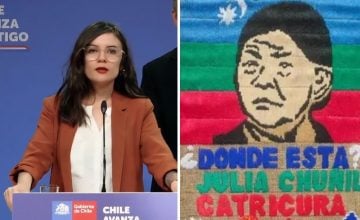Conversation with Foreign Minister Jorge Arreaza.
Our topic today is the situation in Venezuela. After a very tough year, the blockade, the embargo and the COVID-19 pandemic, the country is now before a key election day: the parliamentary elections on December 6. To give us a summary of the events of this year, we have made a very special invitation to one of the principal leaders of the Bolivarian revolution. We are going to welcome Foreign Minister Jorge Arreaza Montserrat.
JA: Thank you very much. An honor, Bruno and Denis, to share with you, and with “Voces sin Fronteras”.
BS: Welcome Chancellor.
DR: The honor is ours.
BS: To begin, we want to ask you about a fact that has emerged in the last hours: where a new report has appeared. In this case, the OAS report, which describes violations of human rights in Venezuela and seeks to bring various authorities to the International Criminal Court. But it seems premeditated, that this comes out just 4 days before the election that Venezuela will live on the 6th of December. And we have seen how media allies of the United States have begun to echo this report without due context. We know that a large part of this report, Chancellor, was written remotely (that is a key fact) and was written in cooperation with right-wing NGOs that are well financed by the United States.
We would like your opinion on the matter, since we have listened to the president himself and yourself, inviting the UN so that it can evaluate in person what the real situation is in Venezuela.
JA: It is not at all that it ‘seems’ premeditated, it is that it is premeditated and without a doubt, it is part of the strategy that whenever there are elections in Venezuela, the enemies of the Venezuelan people do this (in a systematic way). However Bruno, for us the OAS has no significance. We withdrew from the OAS last year. And we also have to take into account that the man who is the Secretary General of the OAS ( whom I have called «the general hitman of the OAS» because he has destroyed the organization) has been in charge of the attacks against Venezuela, Nicaragua, seeking our destruction from the general secretariat, acting as a good agent of the intelligence agencies of the United States. The OAS has gone back to being the same as it was 20 years ago, a ministry of the ‘colonies’ for the United States, dominated and financed by Washington And the issue of human rights, they try to use it. Notice that the person who makes the report today is a supposed expert in responsibility to protect, which is a doctrine that is not contemplated in the United Nations charter and that would give some States the power to intervene in States where human rights are violated.
What they want is to open the doors to a military intervention in Venezuela. That is Mr. Almagro’s obsession, but in fact that is a report without any methodological rigor. These people have not been here and it is not that we have not invited the UN to come, it is that the office of the High Commissioner for Human Rights, Michelle Bachelet, has been in Venezuela for more than a year. That office has staff here and is expanding its staff. If you read the reports, from the first one made by Mrs. Bachelet when she visited us and had no one on the ground, you will see how they have been moderating, modifying and adapting to the extent that her team has been able to learn about the reality regarding human rights in Venezuela.
The United Nations is here and this type of last-minute political maneuvering, due to the desperation because of the elections in Venezuela, has no meaning for us, one way or the other.
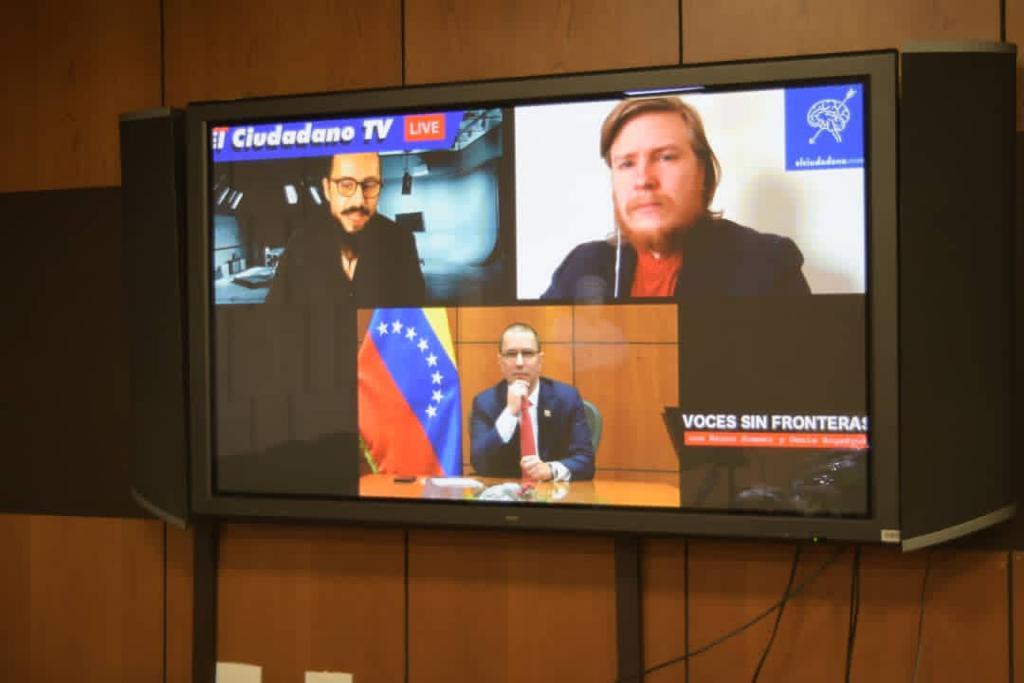
DR: Foreign Minister, this year has been very hard for Venezuela, in terms of the blockade, of interventions by the United States, but what have been the most coercive measures by the United States and its allies? And what kind of assistance have you been able to receive from your strategic partners and allies?
JA: The previous rapporteur on unilateral coercive measures of the UN Human Rights Council, dated back to 2001, to the first coercive measures of the United States against Venezuela. Clearly, since 2014 a series of actions began, laws were approved in the US Congress, the legal floodgate was opened. In 2015 Barack Obama declared Venezuela an ‘unusual and extraordinary threat’ to the national security of the United States. Can you imagine that?, something absurd and far-fetched. And of course, executive orders, laws, that have affected our ‘heart’. The Venezuelan economy has a heart that is the energy-oil industry. They have affected our ability to produce oil, to export and receive payments for the oil we produce but also, they have tried to tie our hands to import any input for production, any product or finished good: be it food, be it medicine, be it basic inputs for production in Venezuela.
All this. Today it is a challenge for Venezuela to go out to the international market and commerce, because first, the Venezuelan State has been subjected to what they call «sanctions» that are nothing more than illegal measures but since they have control of trade and the system, they have a damaging effect on Venezuela’s capacity to maneuver, and now, they are going after third parties: companies, third parties that provide services to Venezuela. Yesterday they sanctioned a Chinese company, which carries with us important projects for the good of the Venezuelan people and we should ask ourselves, Denis … When a Venezuelan with an illness such as cancer is going to undergo radiotherapy and they tell him that he cannot have the therapy because the linear accelerator is damaged and there is a replacement and there is a warranty and software that cannot be updated because those companies (Philips, Siemens) do not want to come to Venezuela because the US government can sanction them.
When you tell a Venezuelan who needs to undergo a surgical operation and needs a prosthesis or needs something in particular and can’t get it . When a businessman wants to import for a joint project with the Venezuelan State and they close his accounts abroad and sanction his family, it is an inhuman and cruel thing and for that reason, we have taken officials from the Trump administration and even before, who have signed or declared any of these measures against the Venezuelan people, we have taken them before the International Criminal Court and a preliminary examination was opened and there are more than enough merits for the Criminal Court to investigate the United States for crimes against humanity. They commit crimes against humanity with these measures because Venezuelans who have died and Venezuelan men and women who have become ill and have not had their medical treatments or food to eat, it is the responsibility of Washington and they will have to respond to international human justice and also to divine justice.
BS: For me, it is incredible and I wanted to comment on how the United Nations issues the reports and closes its eyes to the human rights violations that we have seen in Chile, which continue to take place to this day, turns a deaf ear to this. But, I want to ask you about the issue of the COVID 19, which is a key issue, you just pointed out that the children, the Venezuelans, have been victims of human rights violations due to this criminal blockade but the Bolivarian government, however, has had quite a good and exemplary management of the COVID 19 Pandemic, I want to know how has the Bolivarian Government managed to contain the spread of the coronavirus and in what way has the blockade violated the human right of access to health in these circumstances?
JA: Thank you very much, Bruno, indeed, until yesterday 901 people have died of COVID 19 in Venezuela, but in Brazil, 901 or more people die every day and in Colombia hundreds of Colombians die every day, in Chile, even in Mexico.
We have made a great effort ‘on our hands and knees’ as they say colloquially. We asked the IMF for financing when the pandemic began – 5000 million dollars – they denied it. They did not even discuss it, because it was Venezuela who was requesting it. The Inter-American Development Bank does not – now – recognize the Venezuelan government due to the influence of the United States government. Other financing agencies do not work with Venezuela for fear of the United States and we have 10 billion dollars blocked in banks in the United States and Europe.
We have 2 billion in the Bank of England, in Venezuelan gold, which we cannot use. The Central Bank of Venezuela instructed the Bank of England to deposit the equivalent of that gold in Venezuela, they refused and we told them: “Very well, do it to the UNDP so that it can make the purchases of what Venezuela needs to face the pandemic” and they also refused. Those are crimes against humanity, that is cruel and criminal, and those institutions have to answer to justice.
And what did we do? respond with a strategy: a rigid voluntary quarantine of the Venezuela people at the beginning (which was not with a curfew, with military imposition) and then, we have gradually relaxed, with a unique strategy in the world, with 7 days of flexibility and 7 days of strict quarantine, so we are rotating and thus we have achieved control.
We have had the support of our allies, the People’s Republic of China, who have sent us and we have bought with our resources, tests for the diagnosis of coronavirus, treatments, ventilators, protective suits. Likewise Russia, Turkey …we have made great efforts.
A mask in Venezuela can be 2 and 3 times more expensive than for any other country, because of all the obstacles that the United States government puts up so that we can buy it and that is if we get to buy it in the international market.
That is why we have relied on our capabilities. The United Nations has also supported through its agencies, not with great things, not with the alarm that they raised in the last 12 years of «humanitarian aid». All the doors have been opened and in the end, only ‘drops’ have arrived from those donor countries to the United Nations… But that is what we have achieved, with just over 100,000 cases, a 1% fatality rate. I think we are among the examples to follow and hopefully, we can continue to maintain it.
This month (December) is one of wide flexibility … There are elections and also Christmas, and finally it is the month of December and it will be evaluated with the presidential commission and with President Maduro, who has been at the forefront of the process, to see if the flexibility is maintained in January or we will have to return to the quarantine confinement but we are going step by step, evaluating with the help of our allies in the world and the Venezuelan people, which has acted with an enviable conscience. I take my hat off to my people in many ways, but this year they have taught us a lesson.
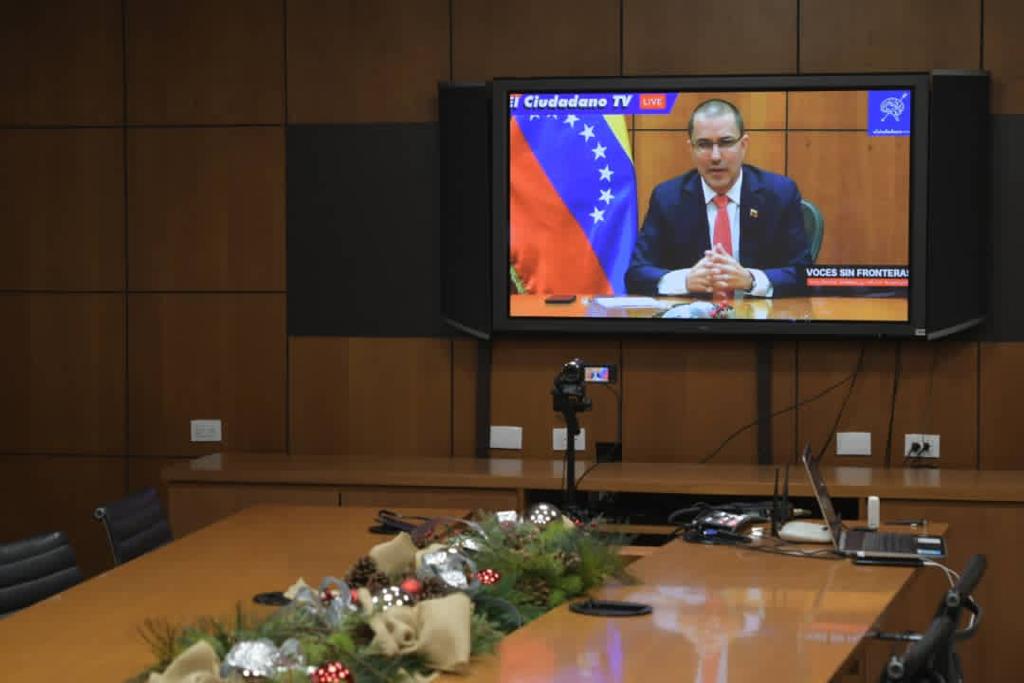
DR: Venezuela has been an example for us for a long time, and now it is an example in the handling of this brutal pandemic, along with the Republic of Cuba. Part of the strategy of the United States is to suffocate the economy of Venezuela as it was done with Chile during the Allende government. Nixon, arranged to ‘seal’ the Chilean economy. You have already mentioned some of these acts. We are seeing some acts of modern piracy against Venezuela. The theft of its gold in the United Kingdom, the Iranian oil destined for Venezuelan refineries, the seized oil, and what happened to the CITGO company in the United States.
How has the Venezuelan government resisted these actions? And how to end these unilateral measures and gray lists?
JA: First, these measures are called unilateral because they are not considered as valid within any instrument of international law. The coercive measures or sanctions that could have some validity are only those taken by the United Nations Security Council. Recently, we have the case of measures against the Democratic People’s Republic of Korea and previously against Iraq. In the case of Venezuela, it is not discussed or will it be discussed, because sanctions against Venezuela would never be viable in the Security Council, so we are talking about an illegal framework and indeed, empires have the characteristics and behaviors of pirates.
The British Empire – when it was formed – had the characteristics of pirates and the pirates were not mercenaries who acted for themselves, there was always the British crown and its interests. And from that British empire rose his ‘son’, the American empire and it also has attitudes of piracy. The gold that has been seized from us in the Bank of England, the 10 billion dollars seized in banks around the world, the oil tankers that they ‘persuade’ to change their course and do not bring the oil that Venezuela has already paid for, the companies that they persecute, that they threaten so that they do not come to Venezuela to trade any product or to take Venezuelan oil … It is something unbelievable that the international system in the 21st century allows this to happen and that the United Nations – out of fear of the States United – lets this happen. It (the UN) has only made two or three calls on coercive measures, which do nothing in practice to prevent it. We depend on ourselves.
How to lift the sanctions? That depends on the United States and its ruling elite. We are learning to circumvent these sanctions, to develop our economy with our allies in the world, and we are increasingly disconnecting from the United States’ system of influence, no matter how close our country is to its territory, we are disengaging. We are depending, more and more, on our own capacities and those of our allies in Latin America, the Caribbean and the world. That is the way.
If the United States changes its attitude tomorrow and decides to respect international law, the Venezuelan Constitution, and Venezuelan human rights, that rectification would be welcome and hopefully we could maintain cooperative and respectful relations with them.
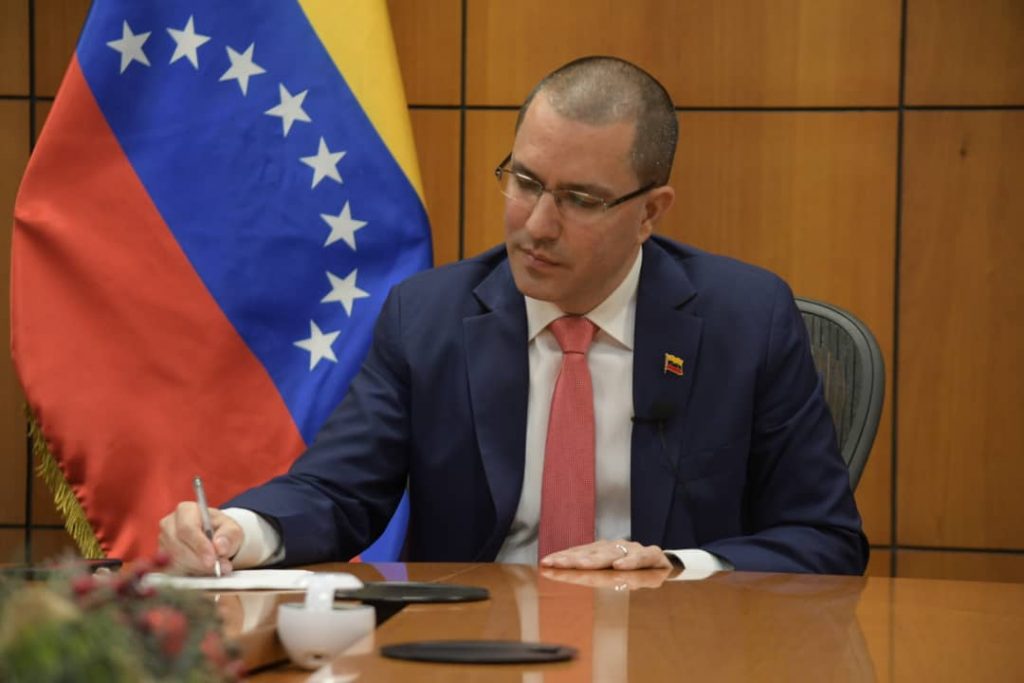
BS: Foreign Minister, it seems that the United States has a great hatred in its heart because Venezuela has decided to follow its own path in the construction of this multipolar world, it has opened up to new trade partners, Russia, China, etc. And they wanted to be the ‘sole’ owners, the only ‘partners’ in Latin America, which they have always seen as their backyard.
What do you think of the ‘changing of the guard’ at the White House and Biden’s coming to power? Is this going to mean any change in Venezuela’s relations with the United States? What do you and President Maduro expect from Biden’s foreign policy?
JA: It will depend on them, we have a path already laid out. We are going to build an independent system in regards to our economy, as we are already independent politically from them. We have the great challenge of the integration of our America. We have the challenge of being able to build our democratic socialism with the participation of the private sector, the multi-political party sectors in Venezuela, so as to consolidate it. That is a long process.
There is only one empire. Eisenhower himself said his concern was that decisions were made by a military industrial complex in the United States and that is a complex that has expanded financially, speculatively, has technology, has new capabilities. It is the most powerful empire that could have existed, which has some political faces and one of them is the person who occupies the oval office, others are in Europe, others are in Asia, Japan, for example, and also in some subjugated governments in Latin America.
So, the fact that there is one person or another, one political party or another, of just two parties that exist in that ‘great’ democracy that supposedly is an example for all, perhaps little can change things, however, we have always extended our hands to them, President Maduro has done it several times, hands, arms, hugs … for the American people and even for those who govern the US, because it is an internal matter. If they have decided to keep that constitution and keep that ruling elite in power, that is a matter for the Americans. We have always promoted respectful relationships with all the countries of the world, even I, myself, met with Elliot Abrams and other spokespersons, to build bridges with the Trump administration, a very complicated task and difficult to achieve and that was demonstrated.
Now, if the Biden administration wants us to build joint bridges, wants to respect Venezuela and seek a dialogue mechanism, we are open to it. We do not have high expectations and if there are favorable nuances for respect for international law and the people of Venezuela, welcome.
DR: Foreign Minister, I would like to return to the subject of the OAS, as this key instrument of US imperialism. Last year we witnessed its work of action during the coup against President Evo Morales, but do you think that this year the power of this institution has weakened? And do you think there is new hope for UNASUR 2.0 with the victory of MAS in Bolivia?
JA: The OAS is in a terminal stage, I think Almagro has dedicated himself to bury the OAS. There is no way to go back in that sense, for us the OAS does not exist and I found out on Twitter about the report and a few weeks ago there was a meeting and I found out because they called me from another country to ask me what we thought and I said: “We don’t we think nothing about it, it doesn’t exist ”. They are nothing and also, after what the OAS did in Bolivia, to set the conditions for the coup with an argument as fraudulent as that of the weapons of mass destruction in Iraq, which Colin Powell later had to deny.
In this case, Mr. Almagro is so arrogant that he does not dare to say that there was no fraud last year in Bolivia and you have seen the response of the Bolivian people and the wide difference. The only difference that guarantees peace in Bolivia was the one that occurred in the elections of October last year. The OAS must learn from that Bolivian example
We must reinforce, our community of Latin American and Caribbean States, CELAC, which is the project of the Liberator Simón Bolívar, which reflects the spirit of the congress of Panama that Bolívar convened in the XVIII century and it was hardly carried out in 1826 and a few weeks later it was sabotaged by the empires of that time. UNASUR has not died, what these ‘subjects’ of the US empire – who are presidents in several countries and are losing power one by one – did was try to neutralize it and create a parallel thing but without real repercussion and hopefully soon, it will continue stronger with the elections in Ecuador and soon in Chile and Brazil. It is not that we want governments of the left, everyone people decides their government but we do hope that they are governments that respect the principle of the union of our America. The costs of not being united in a globalizing world are unquantifiable. We are a potential pole of power, we have the capabilities to face any challenge together and that all our people live with their basic needs satisfied. Everyone, from Argentina and Chile, and even from California, because Latin America is already reaching the United States.
Hopefully these political changes continue to be generated and we can rebuild UNASUR, strengthen CELAC. We are called through history and geopolitics to become a pole of power in Latin America and the Caribbean.
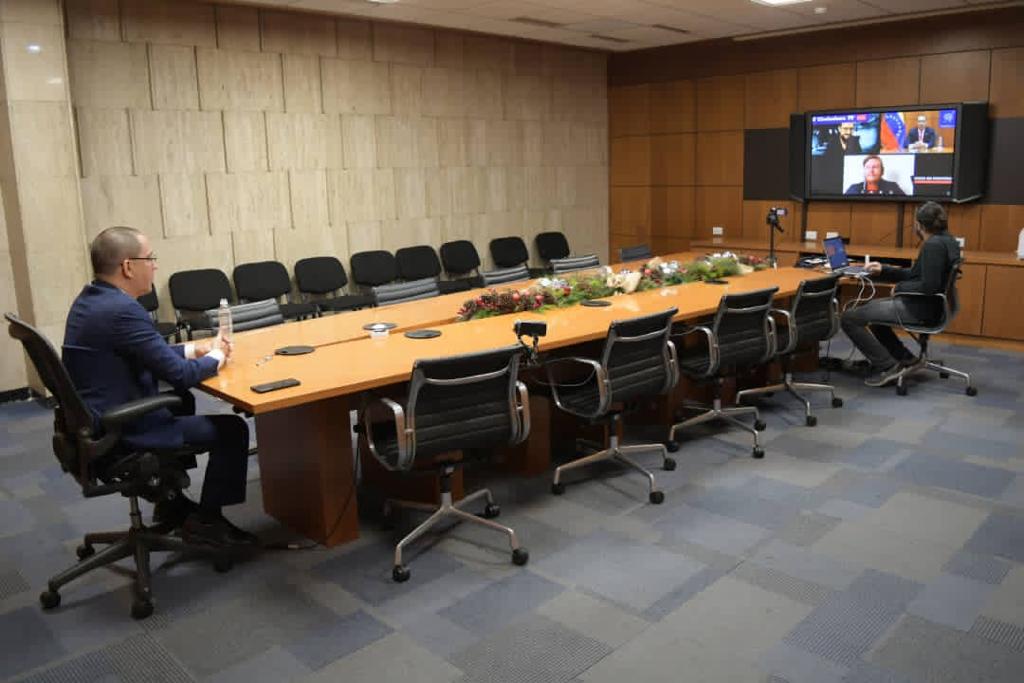
BS: We are on the right side of history, we will see it in life and it will be the best inheritance for future generations.
For us, the parliamentary elections in Venezuela seems like a great step towards the recovery of the National Assembly and the restoration of political order. The opposition has done everything possible to delegitimize it, boycott, burn electoral machines, I hope that the observers confirm this fact because it is really serious. They have asked for military intervention, etc., and in this process at the same time, they seem divided.
What prospects do you see for the Venezuela of the 21st century after the results of December 6? And how do you evaluate the statements in Europe by Chilean Foreign Minister Andrés Allamand, who has said that Chile will not recognize the elections?
JA: We urgently need an opposition that identifies itself with Latin America, independent from Washington, that can make its own decisions, that can reach agreements, confront us within the world of ideas and politics, of democracy, even if it has a neo-liberal project but that is an opposition that responds to the interests of Venezuela.
At this time, that could be the opposition that reaches the National Assembly, the opposition candidates who dared to disobey Washington and participate in the elections this coming Sunday, have exposed their projects, their legislative agendas and, although, they differ profoundly from ours, they are respectable and if they reach the National Assembly, they will have a wide political space. If they present themselves to the Venezuelan people, next year they could win elections (If the Venezuelans vote for them) for governors, municipalities and then, as corresponds according to our constitution, presidential elections.
There is more than one opposition, the one that was left out in these elections is one that answers fundamentally to Washington, and even within that opposition there are nuances, because there was part of it willing to participate but yielded to blackmail, from the United States and the radical opposition groups, and the constitution indicates that the elections are on the 6th and on January 5 a new National Assembly is installed, reinforced by the popular vote and that will have the historic role of rebuilding that legislative space, which was used by Washington not to legislate, but to try to overthrow the government of President Maduro and try to impose a government chosen through Twitter by Donald Trump. Did they fail? totally, for the good of the entire country, we will have our powers fully reconstituted, the legislative, judicial, electoral and popular power, and we will be able to develop all politics in civilized terms, in terms of the common good.
Indeed, we have that part of the extremist opposition. A year ago they burned the warehouses with the electoral machines that characterize the Venezuelan electoral system, which I believe is the best electoral system in the world, to put the elections at risk. However, the CNE (National Electoral Council) appointed this same year by the TSJ (Supreme Court of Justice) – since the National Assembly did not want to elect it – in record time improved it and these machines, that were burned are machines of an old generation compared to the new ones. We have a new technological solution, security guarantee, voting secrecy, transmission, data system and 17 audits, we have an enviable system for the rest of the countries of the world.
Regarding the Foreign Minister of Chile, I confess that I coincided with Minister Allamand in Bolivia, we saw the inauguration ceremony and speeches by the Vice President of Bolivia, David Choquehuanca and President Luis Arce. We have a good talk, and he seemed like a respectable man, a fluent conversation but I understand … I understand the situation in Chile, a dying government cornered by its own people, which demands a change in the system, so a rich society can be developed democratically from the spiritual, intellectual and social point of view, for all. I understand that in the face of their internal difficulties they decide to continue attacking Venezuela, which was the agenda of these countries, of that thing they call «The Lima Group».
We already see what is happening in Chile, we already know what is happening in Colombia, what happened in Peru, which has had 4 presidents since the creation of «The Lima Group», but they will fall under their own weight and in the In the case of Chile, I do not want to get involved in internal affairs but it is evident that that government is dying and with this, I do not want to justify Mr. Allamand, who is committing an outrage. I cannot recognize or ignore the referendum in Chile or recognize or ignore the King of Spain, that is a matter for their governments. And if I ventured to say that I recognize or do not recognize any government or institution, I would be committing a violation of public international law and I would be very ashamed before the world. The best for Chile always, for that beloved people.
DR: Finally, I would like to ask one more question of theory: The world has changed drastically in the last decade and the contradictions of capitalism have become more evident. Following the legacy of Commander Chávez, how do you see the practical exercise of 21st century socialism for the next decade in Venezuela and Latin America?
JA: Important reflection, President Chávez, in January 2005, from Porto Alegre, told the world that the only valid way is socialism, a new form of socialism, it is not the Soviet, nor the twentieth century examples, Vietnamese or Chinese, nor Cuban, each country has its socialism and in its historical moment they emerged with certain characteristics.
I cannot say that in Venezuela we are in socialism, because we are building it. It is a dream and we have the right to dream and build it. It has no recipe or formula, it has theories to take them to each terrain and situation to evaluate how the people react to a human system that puts the interests of nature and the human being above accumulation, the interests of profit. It is an immense challenge, but we have seen that in Latin America, as in Cuba, they have had their own model and it has been successful.
In Bolivia they had a one-year hiatus but the people opted for the construction of socialism again. In Ecuador there was a parenthesis that seems to be closing soon and the construction of socialism will be back. I believe that when President Chávez began to periodize the revolution since 1992, at some point in the military rebellion that he led, but mainly since 1999, 2000, 2010, 2020, 2030… he looked towards the strategic horizon of 2030. I I believe that the world will be very different in 2030, despite the fact that capitalism has the strength to resist the blow to the economy that capitalism received this year, which collapsed when the workers stopped working due to the pandemic because it is the worker, the one who generates wealth and not the owner of the means of production. It is the human being who generates wealth… Capitalism received a blow but also, countries where the State has been reduced to its minimum expression by neoliberalism, were seen in total inability to control the pandemic and we see the results in the numbers of deaths, of cases of contagion.
In countries where the State has strength, we were able to advance in the control of the pandemic and we saw all the flaws in capitalism, its cruelties and crimes and there, however, it is reinventing itself, grouping itself.
It is a task, a tough battle but with a lot of dialectics. We are going with a very clear course and with a very clear objective and this decade is crucial and perhaps, by 2030 we will be closer to a socialist system or we will be in a fully socialist system. The people will know how to conduct these processes, the people will know how to continue putting all their effort and will on the Bolivarian Chavista process, as they have been doing since 1998 and more countries in Latin America and the world will be joining this project. It is a collective construction, a socialism that is not imported, a socialism that is created. It is a heroic creation, as Mariátegui would say. It is socialism or barbarism as Rosa Luxemburg would say.
In this moment – of historical inflection – or we build a system that can structurally overcome capitalism or capitalism destroys not only humanity but also Mother Nature in its voracity. It is up to us to put an end to this devastating system.
BS: It will depend on the people and their ability to organize themselves. Thank you for participating in this ‘Voces sin Fronteras’ program
